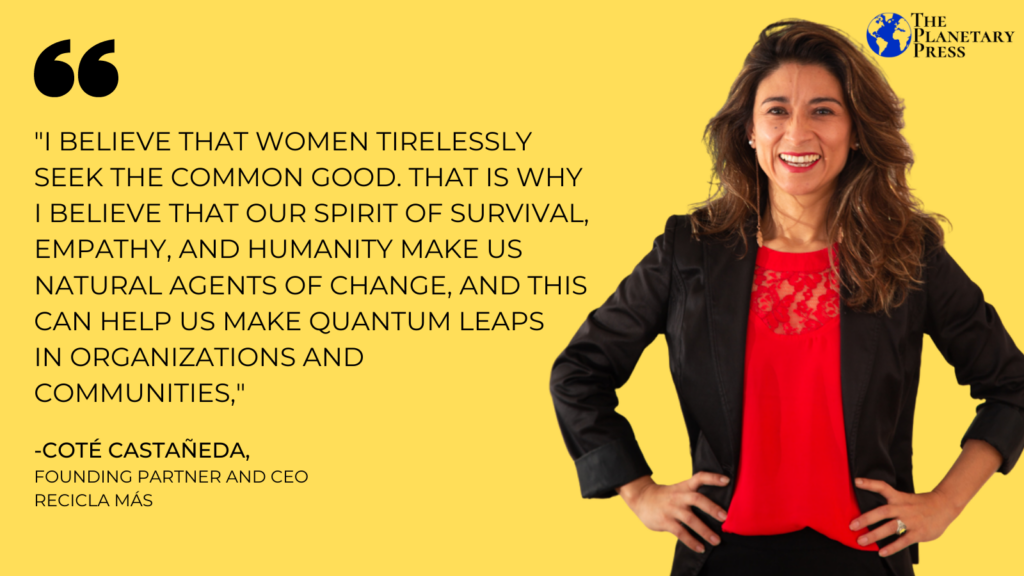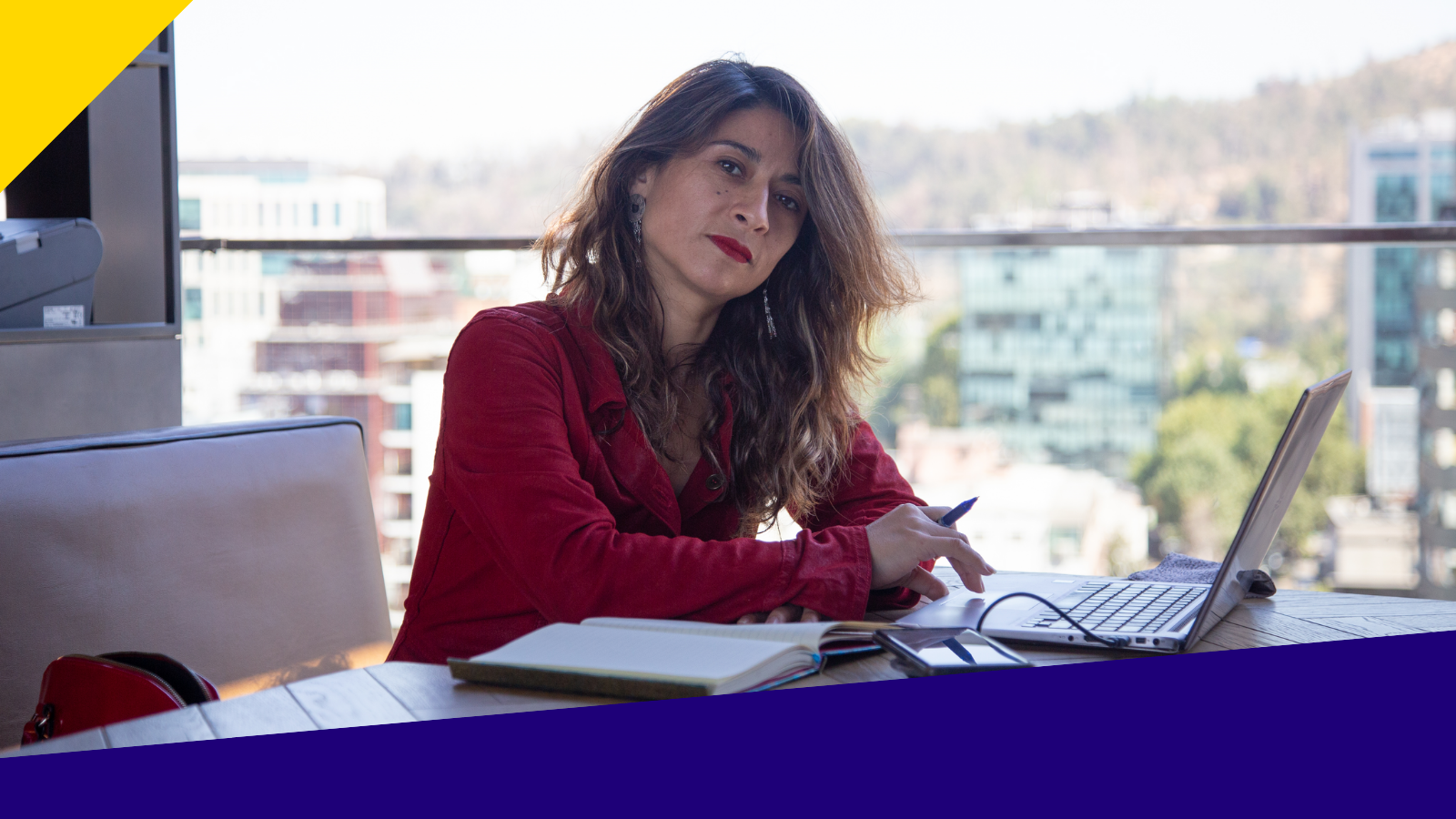This profile is published in collaboration with Level Magazine
Coté Castañeda is an industrial and civil engineer, and she is a dreamer and visionary of the circular economy, sustainability, and green businesses focused on recycling processes. Currently, she has advised 120 public and private companies in Chile and countless people, connecting them with her great purpose: regeneration of the ecosystem and the social fabric.
“I discovered circular economy in 2010 when I was head of the cabinet of the Minister of the Environment. At that time, I delved into issues of sustainability and recycling, and it seemed like a tangible task where I could connect different disciplines for common purposes; it is at that moment where I decided to dedicate myself to this topic,” she notes.
Coté is convinced that all human beings must know the birth and the end of all products, not only when they are bought, but also what happens previously with the raw material and later with the waste, after they pass through the hands of consumers, that is, to know the chain of the useful life of the products until they re-enter a production system, this with the intention of being more responsible as a society and with the environment.
For this reason, she has dedicated a large part of her time and experience to leading transformations in the circular economy and focusing on the prosperity of the territories through the strategic planning and execution of agile projects that she develops with SMEs and territorial actors in three specific sectors: gastronomy, tourism, and commerce.
With a background that has been acquired over 15 years, Coté has managed to design and lead, together with a team a self-diagnosis tool that helps companies to organize and prioritize social, economic, and environmental actions. This tool has allowed Coté to diagnose more than 50 companies, including the Pinpilinpausha Restaurant, which, thanks to the participation of the expert, has made progress on the issue of sustainable fishing, recycling, energy efficiency, and sustainable purchases, granting it a positive business impact.
Also, among her achievements, this visionary implemented the sustainability variable in SEROTEC’s Commercial Neighborhoods Program, an initiative that has impacted 40 neighborhoods in Chile, and by 2021 it is expected that 60 more neighborhoods will be added. This is how, through this self-diagnosis tool, Coté is helping a group of entrepreneurs to incorporate sustainability elements into their different lines of action, generating, through their work, a great impact on SMEs throughout her country.
Among her initiatives and materialized projects with which she provides a scope of her different services, she has Recicla+aimed at companies and organizations that want to reduce the impact of their waste through digital technology. In the same way, Ingenativa, through which she creates new business models that promote local development in terms of innovation, sustainability, and tourism, and is an active part of the collaborative network, La Ciudad Posible.

Her commitment to women and to reduce environmental impact
The recycling expert, in addition to contemplating a general purpose, which is to make people shine and tirelessly innovate to reduce environmental impact, has an important focus, and it is the role that women play in their intention of sustainable development. She is convinced of the power of transformation that the female gender has, which is why they have developed an exclusive program for women who want to specifically improve the sustainability of their organizations and territories.
“I believe that women tirelessly seek the common good. That is why I believe that our spirit of survival, empathy, and humanity make us natural agents of change, and this can help us make quantum leaps in organizations and communities,” she points out.
Recommendations to start helping the environment at home and in companies
Finally, Coté Castañeda, from her intention to raise awareness and reduce environmental impact, provides some advice and recommendations for everyone at home or in companies to implement recycling actions and jointly make a contribution as a society.
At home, she recommends making a vermicomposter to feed worms with the organic waste from home. With this, they will not only reduce the waste generated at home by half but also have the possibility of producing smoke for your garden.
Minimize the consumption of packaging at home by buying everything in bulk and give a reusable use to existing bags at home.
As for companies, she recommends that the first action they can implement in the recycling process is to measure and make a diagnosis of what they are discarding in order to develop a strategy of what they will do later with that waste, and ask themselves: why not be part of the circular economy?







